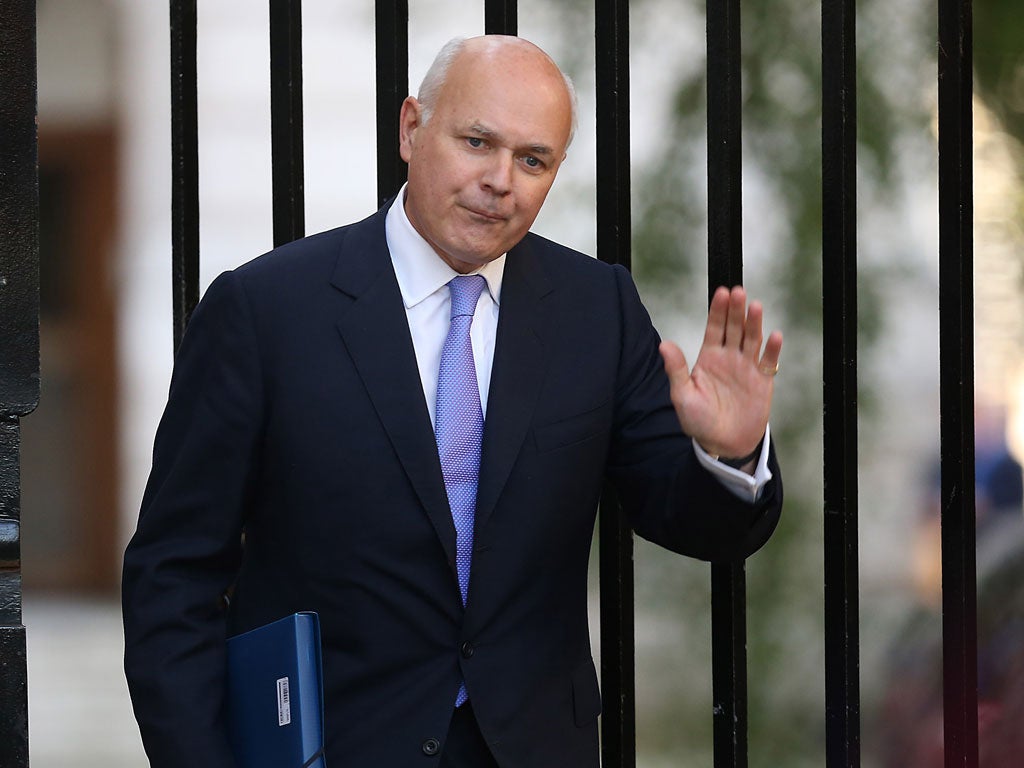Ministers missed key evidence of fraud in welfare-to-work scheme
MPs condemn DWP for lax management of A4e and failure to identify malpractice

A £1-billion-a year scheme to help the unemployed into work was so badly madly managed by ministers that vital evidence of potential fraud never picked up, a damming report concludes today.
Ministers have been condemned by a committee of MPs for failing to investigate properly allegations of fraud in the Government's flagship schemes to get the unemployed back to work.
The Commons Public Accounts Committee said the Department for Work and Pensions (DWP) had missed “vital evidence” of potential fraud at the controversial welfare-to-work provider, A4e.
The department was accused of failing to “exercise sufficient oversight” of the private companies delivering the programme. Cases of alleged fraud were overlooked because officials had not “asked the right questions”.
The committee concluded that the DWP had been remiss in failing to obtain internal audit reports from A4e from 2009 which detailed a “considerable number” of cases of alleged fraud and malpractice. The company has won contracts worth £200million to run welfare-to-work schemes since May 2010 but has been hit by scandal with allegations of fraud and malpractice.
In February, the A4e founder Emma Harrison - who was appointed by David Cameron as the Government's “family champion” - announced that she was quitting the firm amid claims of widespread problems in the organisation.
The DWP, where the Secretary of State is Iain Duncan Smith, launched an inquiry into the company which resulted in it being stripped of one of its contracts to help the jobless find work in May after ministers concluded that continuing would be “too great a risk”.
However, the company still holds 11 contracts with the Government and the committee accused the DWP of failing to address the wider issue of whether A4e was a “fit and proper” company to continue to carry out such work.
“The department's arrangements for overseeing and managing its contractors did not pick up vital evidence about potential frauds,” the report said.
“The investigations of alleged fraud that the department has carried out have not been sufficiently thorough.”
The committee had heard evidence from three whistleblowers who told MPs that they had found evidence of widespread fraud but their concerns had been ignored.
Their evidence was heard in private after Conservative members of the committee blocked attempts for them to address a public hearing. The transcript of their testimony was omitted from the final report at the request of the whistleblowers themselves, who included auditors from two of the biggest welfare-to-work providers.One of the whistleblowers was Eddie Hutchinson, an accountant of 30 years standing, who was appointed A4e's head of audit in 2010. He alleged that an “unethical culture” had led to “systemic fraud” at the company.
Another whistleblower described serious problems at another welfare to work provider, Working Links, which runs three major contracts on the Coalition's £5 billion jobs scheme and is part-owned by the Government.
A third whistleblower who had worked at A4e told how she had been asked to “fix” files to suggest that people had successfully found work.
Committee chairman Margaret Hodge said that if the Government chose to use private companies to provide public services, it was essential that the proper controls were in place.
“In this instance, the DWP's arrangements for overseeing and inspecting its contractors were so weak that vital evidence on potential fraud and improper practice was not picked up,” she said.
“The department is still investigating allegations brought to its attention by the committee but was not proactive in setting in place systems which root out fraud and malpractice.
“If it had not been for whistleblowers, a range of systemic issues would not have been identified.
“The department might have identified these issues if it had asked the right questions of providers.”
A DWP spokesperson said that the fraud cases related to previous welfare-to-work schemes under the former Labour government: “We have also put in place the toughest anti-fraud measures ever included in a Government back to work scheme. We have made this clear to the committee on several occasions. The examples of fraud mentioned in the report do not relate to the Work Programme.”
She added that the DWP's enquiries into the whistleblower's allegations about Working Links had concluded. “We are satisfied that these cases were investigated thoroughly by Working Links at the time and that appropriate actions were taken. The associated amounts have been repaid.” But she refused to say how much public money had had to be repaid or how many cases it related to.
However the enquiry into A4e is ongoing. She added: “These enquiries are prolonged, reflecting the inevitable challenges in securing evidence from these historic claims. It remains important that we are thorough in reaching a clear and evidence based conclusion in these matters.”
A spokesman for A4e said: “The allegations highlighted in today's report all relate to historical, paper-based contracts. Where we have made mistakes in the past, we have acknowledged them and ensured that all allegations, where evidence was provided, were fully examined. There are no new allegations in this report.
“The current Work Programme eliminates the opportunity for similar issues to arise because it is computer-based and payment is on results - both of which A4e strongly advocated. However, we fully understand public concerns and are working hard to set new standards of openness and responsiveness.”
Join our commenting forum
Join thought-provoking conversations, follow other Independent readers and see their replies
Comments